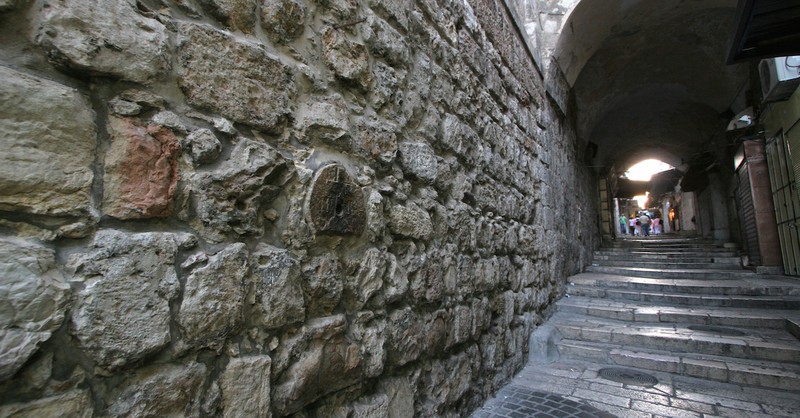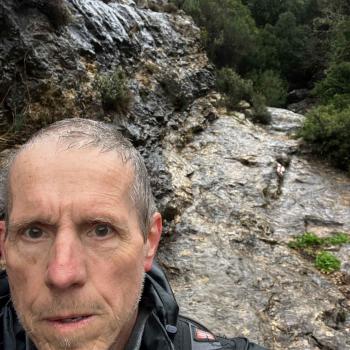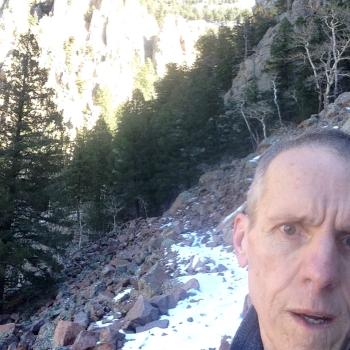There we were in box car,
Dad and brother and me, on a rail excursion, a day trip along a section of right of way where rail buffs like my dad would go to see some unusual trestle or tunnel, and standing there huddled like human cows dad saw and old friend and said to my puzzlement, “Long time no see!” It made no sense at the time ( being about eight) which is probably why it has stuck with me. (Mom used to sing “mersey doats and dosey doats” and it is still in my head 60 years later)
being about eight) which is probably why it has stuck with me. (Mom used to sing “mersey doats and dosey doats” and it is still in my head 60 years later)
Anyway, the box car doors were open but barricaded so we could look out as the train puffed along. To current eyes it would be shockingly inadequate, two long pieces of 2×4 lumber serving as a temporary fence. Brother and I were short enough to look between the boards, and could have easily slipped and fallen along the wayside. Not that we were tearing along, mind you. We were being pulled by a steam engine, which meant going about 25 mph. I’ll get back to the story in a moment, though. Time for the spiritial part:
What brought it to mind was the lapse of days between posts, and feeling a need to apologize, and that title “Long Time No Write” just leapt into my mind, bringing with it a memory far larger than the words.
Every time we speak or write, the past is waiting to come back.
In a certain sense we are all magicians, conjuring up the past with words. My first post was a story from the same period of my life, and writing them not only evoked them, it gave them a sort of verbal flesh. Yes, that is a reference to John’s gospel which is even more mystical in Greek.:
ἐν ἀρχῇ ἦν ὁ λόγος, καὶ ὁ λόγος ἦν πρὸς τὸν θεόν, καὶ θεὸς ἦν ὁ λόγος. οὖτος ἦν ἐν ἀρχῇ πρὸς τὸν θεόν. πάντα δι᾽ αὐτοῦ ἐγένετο, καὶ χωρὶς αὐτοῦ ἐγένετο οὐδὲ ἕν. ὃ γέγονεν ἐν αὐτῶ ζωὴ ἦν, καὶ ἡ ζωὴ ἦν τὸ φῶς τῶν ἀνθρώπων· καὶ τὸ φῶς ἐν τῇ σκοτίᾳ φαίνει, καὶ ἡ σκοτία αὐτὸ οὐ κατέλαβεν.
“In the beginning was the Word, and the Word was with God, and the Word was God. in the beginning this was with God. All things came into being through it, and without it nothing came into being. What has come into being in him was life, and the life was the light of all people. The light shines in the darkness, and the darkness did not comprehend it.”
with God. All things came into being through it, and without it nothing came into being. What has come into being in him was life, and the life was the light of all people. The light shines in the darkness, and the darkness did not comprehend it.”
Pretty cosmic sounding stuff. Here’s the problem.
We forget that miracles happen on a daily basis
Which is why we forget they are miraculous. Isn’t the definition of a miracle an exception to the expected? Yep, I just checked it out. Turning word into flesh is not a miracle, though. We do it every day when our words frame our actions. The opposite is certainly true, as it takes fleshly mouths to make words in the first place.
That brings me to my grandson, who as a rising two year old is very parsimonious with his spoken words. He uses only about five, but he understands us grownups almost frighteningly well. More than once we thought something we said was over his head and he caught our meaning. And what he does not ‘say’ with his mouth he conveys with sign language that his care giver has taught him, even beginning to string them together in short sentences. Words are how we give meaning to the world, animate it, so to speak, whether spoken out loud or with our eyes and hands. Sweeing that happen in his head is a glorious thing to witness, and bve reminded of.
And what has all this to do with Pilgrim Life?
Aside from taking you on this journey from a remote moment in my childhood, through the gospel of John, to my grandson – a mental journey – I am hinting at how pilgrims not only draw meaning they bestow it. Not consciously, mind, but by showing up. Without speaking they turn a spot – a moment or place – into something with meaning, which is what a word does. Pilgrims are living words, as the gospel said. And here’s an example:
 There I was, almost a month ago now, along the narrow way that is the Via Dolorosa in Jerusalem.
There I was, almost a month ago now, along the narrow way that is the Via Dolorosa in Jerusalem.
I had walked it as a pilgrim already and now using it just as a person, when I was forced to stop by a group of pilgrims.
There were maybe twenty, four of them carrying a cross on their shoulders, and they had stopped right there in the middle of the narrow street obliging me and others to wait. The priest begn saying prayers. I knew this was a ‘station’ (I will tell you more about the Via itself another time) but had not noticed the plaque on the wall high above before. Nothing special, but had they not been there, and had I not stopped in respect, I would not have seen it.
Their presence made me see what I had missed.
Dad talked to his friend for a few moments, their legs accustomed to the lurch of the train as much as sailors are accustomed the wobble of the ship’s deck. Brother and I were surrounded by a wall of grown men living their boyhood dreams. Some leaned out the open door to take photos as the train went around a curve and the locomotive became somewhat visible beyond its constant cloud of vapor. Regular blasts from the whistle brought smiles to the riders. This all remains with me over sixty years later, down to the spring warmth of Maryland, the waiting alongside the track for the train to do a drive by for the photographers, and the vendor with his tray of snacks and drinks as he worked his way through the cars.
This I have carried with me through the years. Those words from long ago, which meant so little then to my child brain, came to hold a whole experience inside them. It’s magic, but everyone does it.
Hocus Pocus is the phrase we use whe speaking of magic, which phrase, by the way, is a mocking reference to the Latin Mass where the priest says “Hoc est enim corpus meum,” ‘here is my body,’ which is when the bread turns into the body of Christ. But we do this all the time. Ignazio Silone did it wonderfully in his book “Pane e Vino.” Maybe our task in life is to conjure – to turn word into flesh, bread into body – which is just a fancy way to say bestow and endow by word or presence the shimmer of truth that even a stone or loaf of bread have to offer.
More than place, Pilgrim Life is through time,
which Einstein proved is really the same thing. That makes the pilgrim a sort of photon, :max_bytes(150000):strip_icc()/GettyImages-180294159-57a0b3915f9b589aa9b765e2.jpg) shooting through the universe, lighting up those all around even as they seek new light themselves. Not a bad image of pilgrim life, I think.
shooting through the universe, lighting up those all around even as they seek new light themselves. Not a bad image of pilgrim life, I think.











